Analyses
International and Global Trends
Washington and Tehran: Negotiations Under the Hammer of Military Buildup
Regional Trends
Iraq Between Geopolitical Challenges and Strategic Opportunities
Regional Trends
The Syrian-Iraqi Border: Reshaping the Geopolitical Space of the Middle East
International and Global Trends
Real clear world: A former terrorist inside the white house
International and Global Trends
NYT: The President and A Former Terrorist Meet at the White House
Filter by:
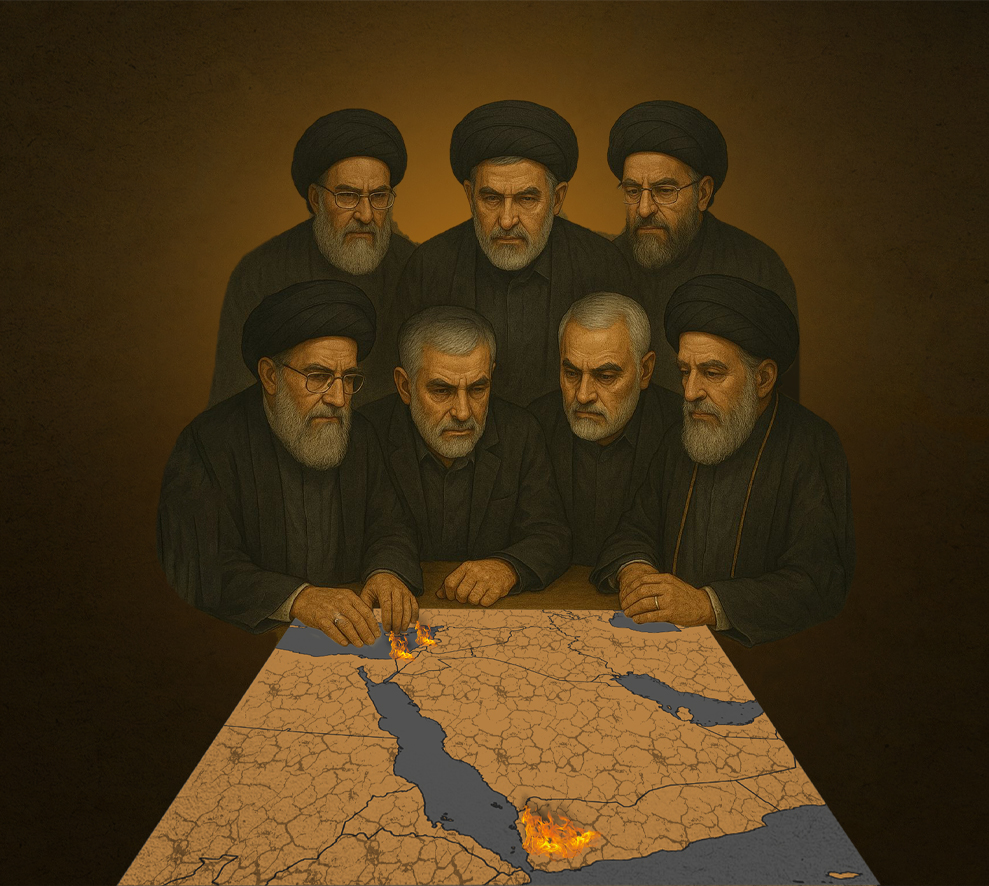
My Third Message to Our Arab Shia Brothers: A Call to Reason and Reality
I renew the call to our Arab Shia brethren: Let your belonging rise above all else and let your loyalty be to your Arab nation—away from involvement in any partisan or external orientation. Face the present challenges with a spirit of responsibility and courage despite the successive losses that have drained and weighed heavily upon you. Reassess your path with honesty and distance yourselves from false loyalties that have brought nothing to you and your homeland but blood, destruction, and calamities.
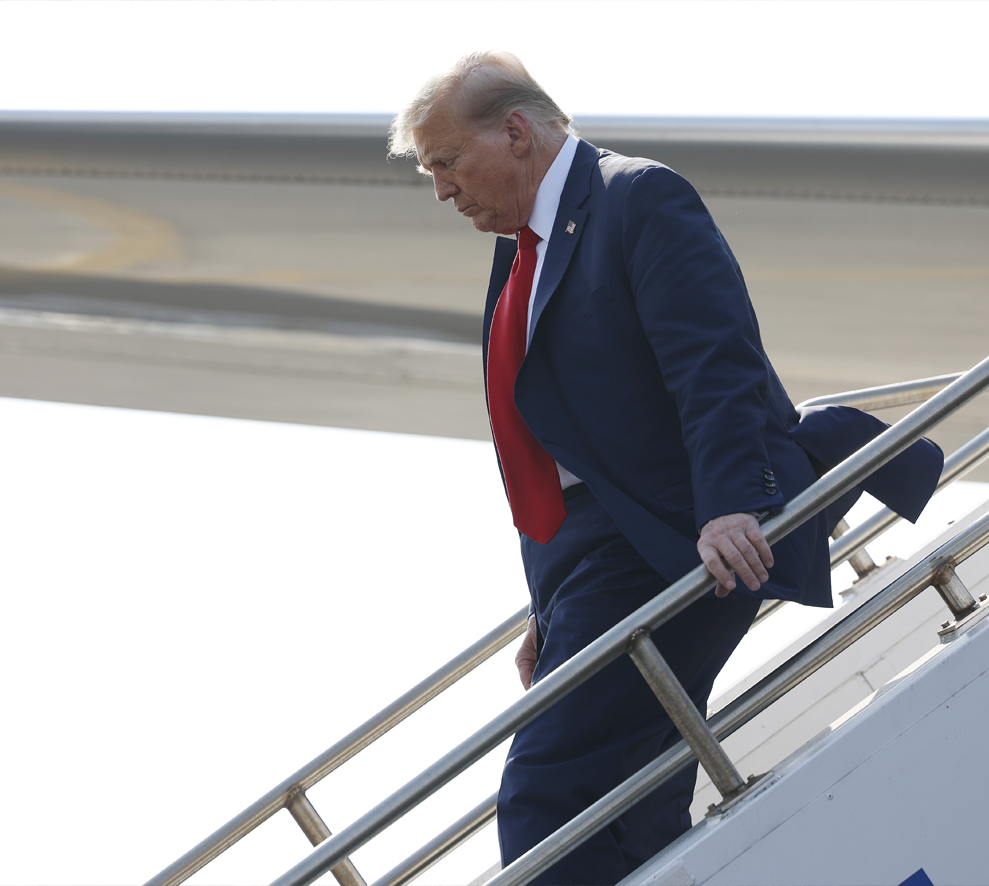
Trump’s Gulf Tour and the Intersection of Regional and International Files
U.S. President Donald Trump departed for the Kingdom of Saudi Arabia on his first official foreign visit. His trip to the Gulf countries comes at a critical time in which the impact of regional changes intersects with the priorities of American policy. The visit highlights Gulf-American cooperation on vital issues such as Iranian policy, the Palestinian cause, and Arab-Israeli relations. Gulf countries are taking a leading role as key supporters of peace efforts, while Trump aims to focus on de-escalating conflicts and reducing the American military footprint in the region.
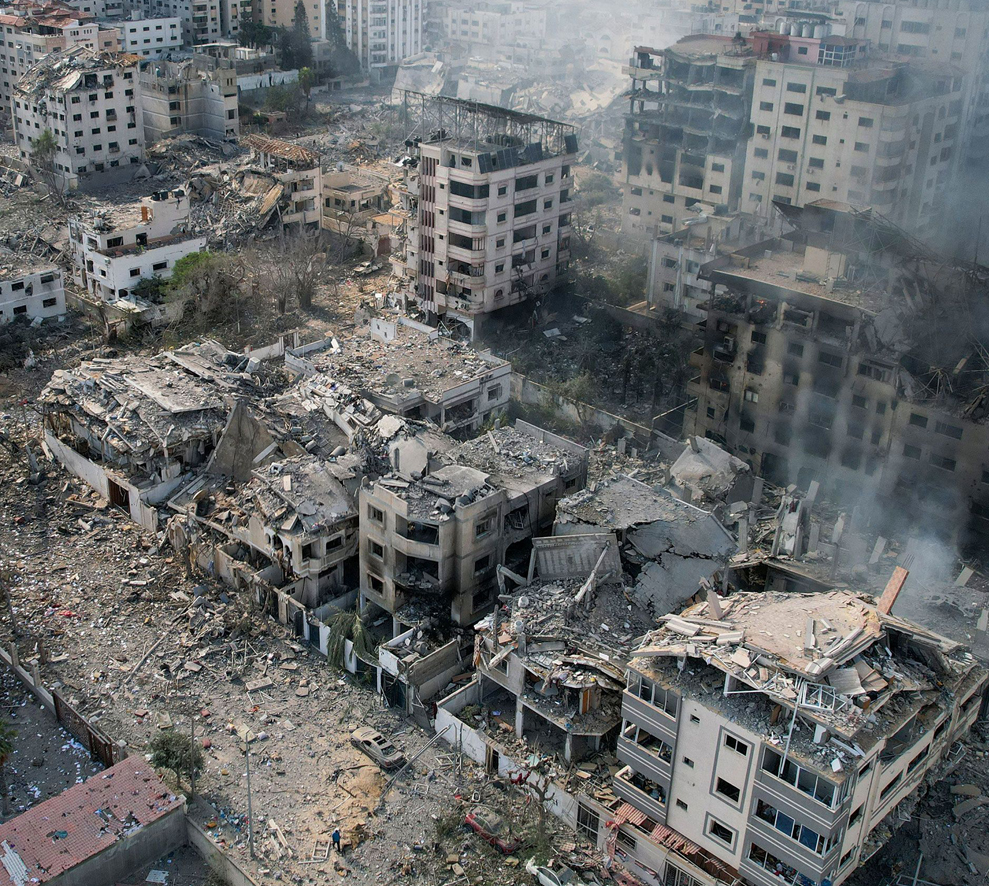
The Resumption of the War on Gaza: New Equation for Its Risks and Objectives
Israel’s resumption of military operations in the Gaza Strip comes after the failure of negotiations. It reflects strategic objectives that go beyond merely responding to the deadlock, aiming instead to redraw goals and reshape the geographical and demographic structure of the Strip through displacement, occupation, and the imposition of military rule.
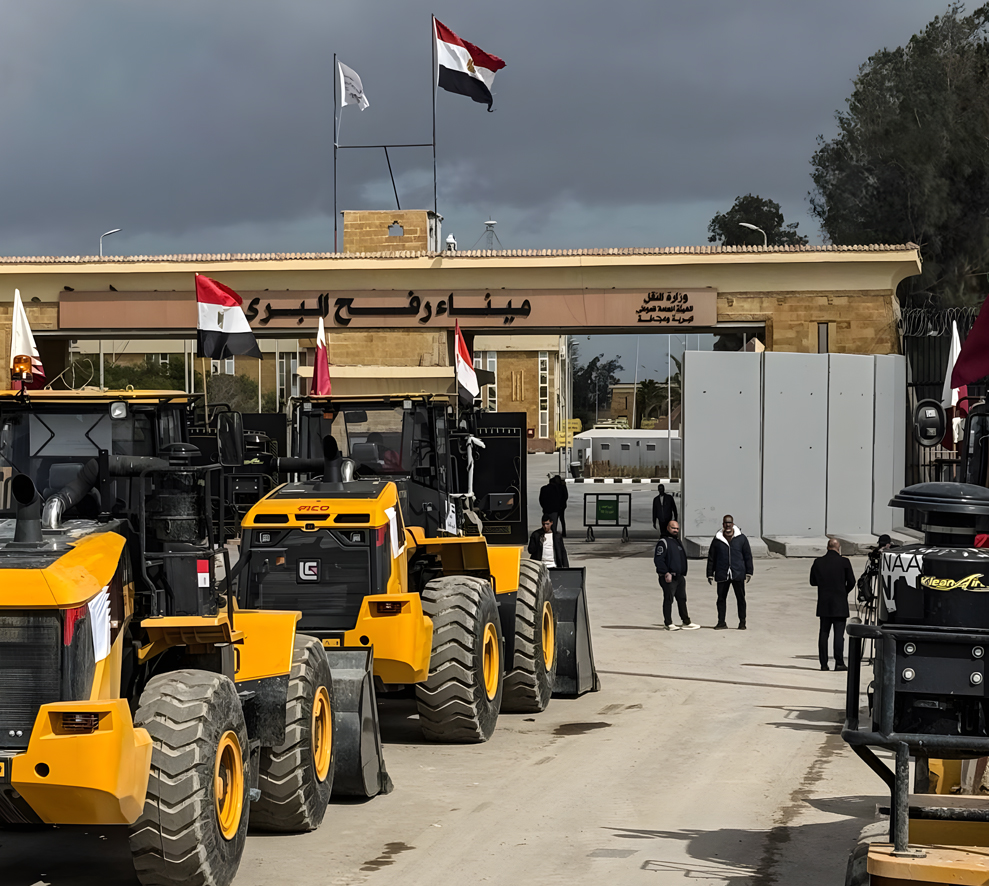
Does the Arab Reconstruction Plan Overcome Its Operational Challenges?
The reconstruction plan is being developed in coordination between Egypt and various Arab countries, with its details expected to be presented at the Arab Summit in Cairo. In response to U.S. President Donald Trump’s stance on the displacement of Palestinians, Arab countries have moved swiftly to propose a more logical and realistic alternative plan.
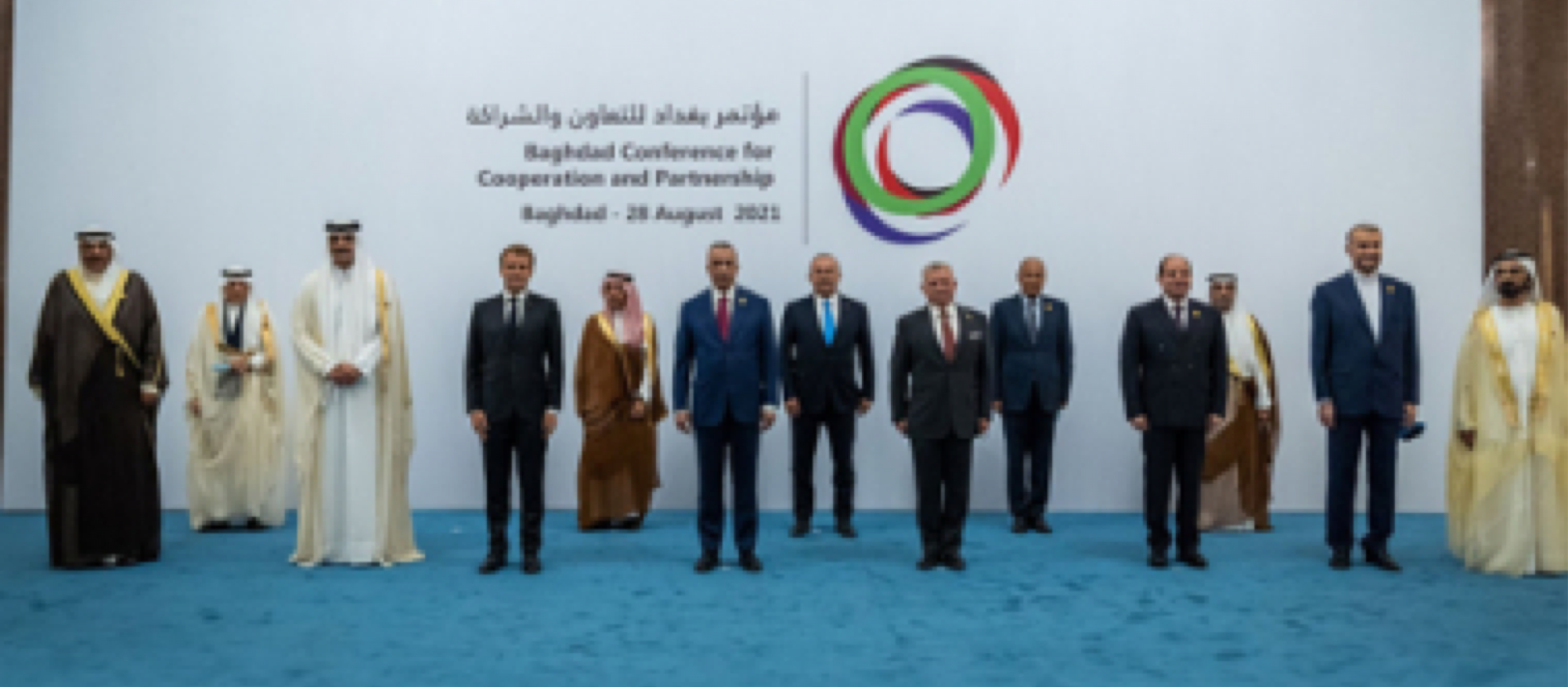
Advertising space title
Description of the advertising space. Upon the client’s initial approval of the design, this text will be removed.
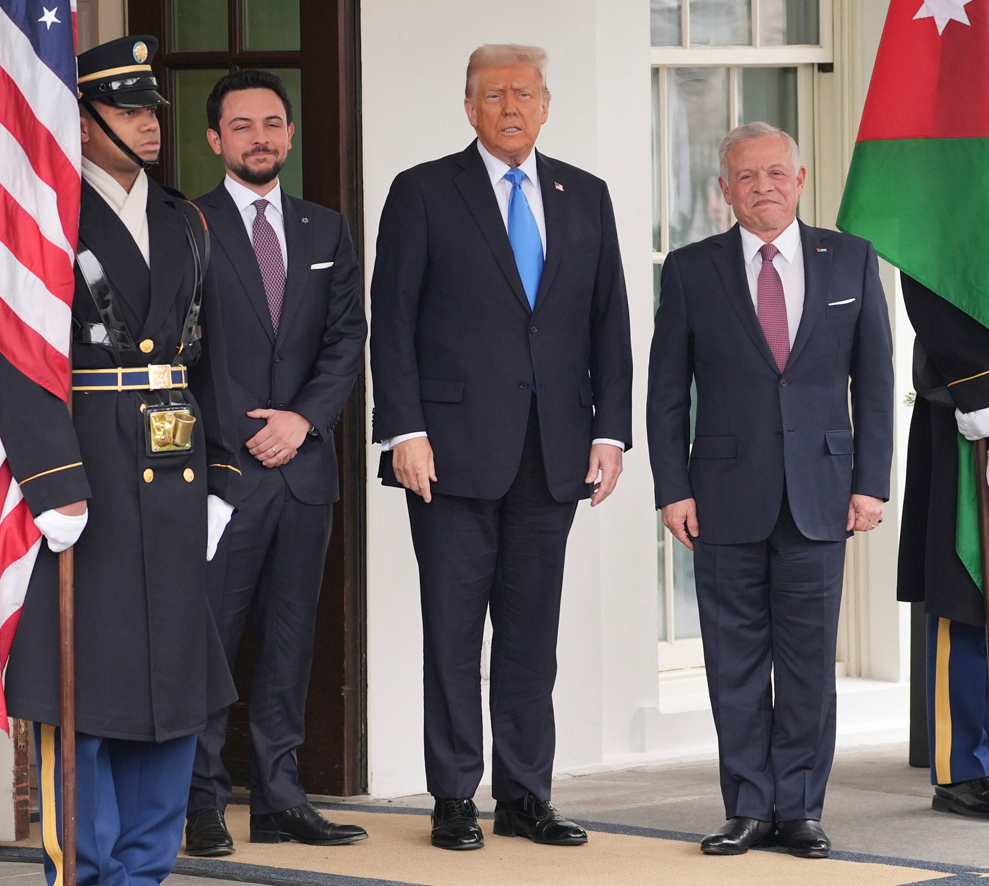
The King’s Visit to Washington: The First Step in the Race to Reject Displacement
Jordan has prior experience dealing with U.S. President Donald Trump during his first administration, which showed a tendency to liquidate the Palestinian issue without considering the fundamental principles of the Palestinian cause or the American foreign policy toward it. Given the changing realities facing the Gaza Strip, the Middle East, and the international community in general, Jordan’s position today seems to be based on more precise calculations compared to the approach during Trump’s first administration. This is especially true given that the threats today encompass all Palestinian territories, not just the Gaza Strip.
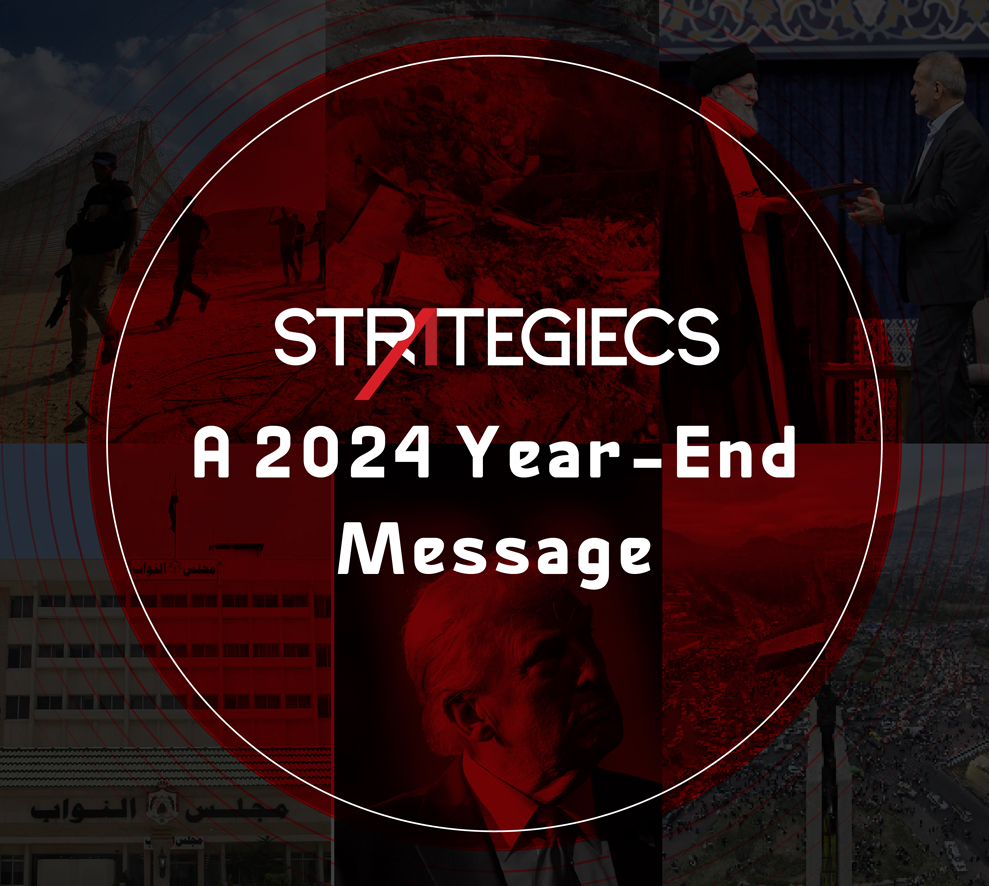
STRATEGIECS: A 2024 Year-End Message on the Priority of Foresight in a Complex World and a Tightly Interwoven Regional Landscape
The year 2024 has served as a testing ground to assess the accuracy of the methodologies the STRATEGIECS Institute has developed over the past years, as well as an operational platform to utilize the accumulated expertise of its team. This was particularly evident in their ability to devise results and forecast directions related to various events and issues. The results have been highly promising, both in terms of the pace of research output and the accuracy of predictions.

Trump 2.0: Political Directions and Regional Changes
The administrative staff of U.S. President-elect Donald Trump has been completed, particularly concerning foreign policy leaders and those responsible for the Middle East. A thorough analysis of Trump’s team offers an insightful view into the plans and positions likely to be followed during his second term, especially in relation to the region.

War on Gaza: Israel’s Ban on UNRWA and the Challenges of Global Governance
Israel’s ban on UNRWA imposes severe humanitarian challenges on the beneficiaries of its services in the West Bank and Gaza Strip. It is considered a political and legal overstep in light of the agency’s mandate, history, and roles. Additionally, the ban highlights the issue of global governance and its ability to provide an appropriate response in an increasingly tense world, especially in terms of relief efforts and humanitarian aid.

The Second Arab-Islamic Summit: Timing and Contextual Implications
The second Arab-Islamic summit reaffirmed the call for an immediate halt to the wars in Gaza and Lebanon, urging an end to their disastrous humanitarian impact on civilians. The summit also emphasized the need for continued coordination with the international community to put an end to Israel’s violations of international law and international humanitarian law, while warning of the grave risks associated with the escalation of the conflict and its regional and international ramifications.